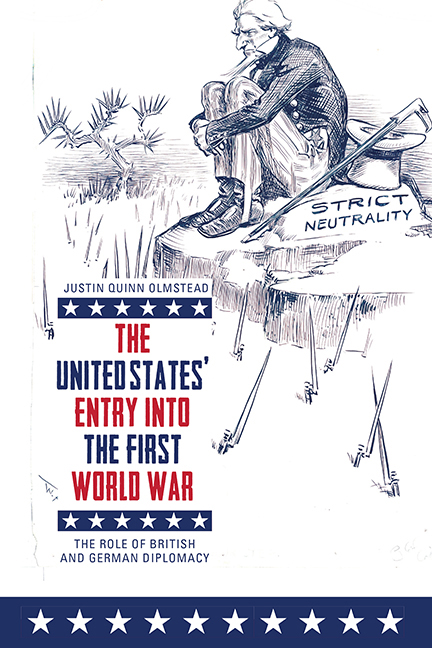Book contents
Summary
The winter of 1916 to 1917 brought more than just a renewed push for unrestricted submarine warfare by the Germans. In fall 1916, Grey had once again attempted to squeeze neutral shipping and continue to starve Germany. In what was essentially retaliation by the United States, Congress authorized Wilson to threaten the flow of supplies to Britain and its Allies. The initial British response was to fold. Internally, it formed an Interdepartmental Committee to consider the ramifications of nonintercourse (no trading) with the US. This committee consisted of representatives from the War Trade and Advisory Council, the Ministry of Munitions, and eventually the Treasury. It was tasked with determining Britain's need for US supplies, and whether Britain could punish America if it cut off those supplies.
One aspect of this committee's work was to determine how Britain could force the US to continue supplying the Allied war effort. Report after report detailed the British dependence on American production and finance. Each noted that it was possible to make up the difference in production if Britain was cut off from US trade, if it could corner the remaining world markets. More importantly, the reports also stated that it would take time to secure the markets and an increase in merchant shipping tonnage – and even then, the belief was that it would last only a short while before Britain was again dependent on the United States.
Britain's dependence on the US was heavily mixed with the American recession scare of 1914. Despite Wilson's determination to have the US remain neutral, the economic stimulus that the war in Europe gave the American economy was not something he could ignore. As J. P. Morgan & Co. partner Harry Davison noted to US Treasury Secretary William McAdoo (the son-in-law of the President), in order for the US to maintain its prosperity, it would have to finance the war. British expenditure on the war was costing £5 million a day in 1916 and was expected to rise to £7 million a day in 1917.3 By the end of 1916, British loans through J. P. Morgan & Co. alone amounted to $400 million of debt.
- Type
- Chapter
- Information
- The United States' Entry into the First World WarThe Role of British and German Diplomacy, pp. 155 - 161Publisher: Boydell & BrewerPrint publication year: 2018



